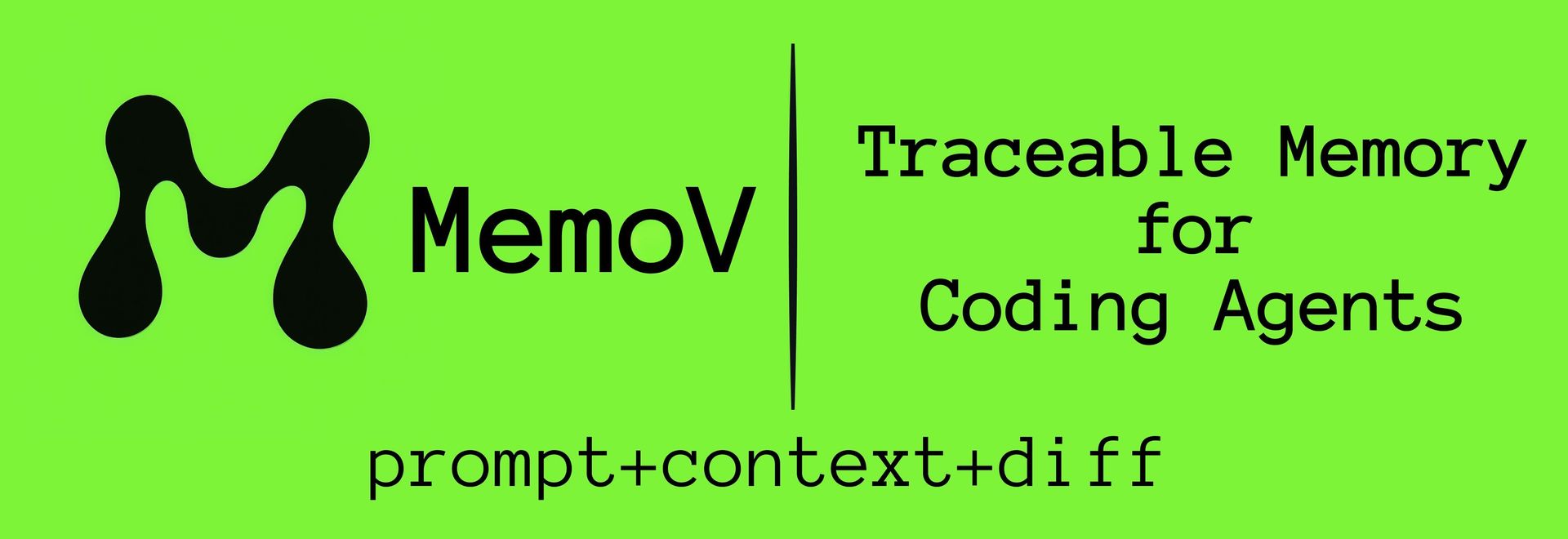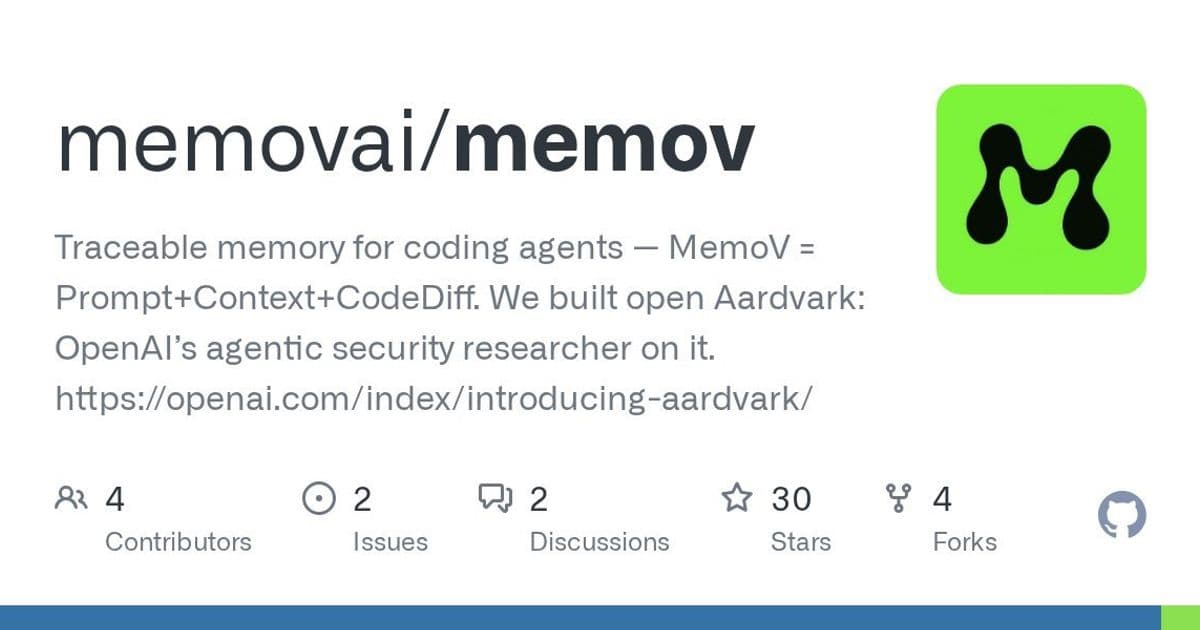MemoV introduces a revolutionary memory layer for AI coding agents, capturing every prompt, plan, and code change in a separate timeline beyond Git. This open-source framework enables granular context tracing, 5x faster debugging, and cleaner version control workflows for developers.
MemoV: The Memory Layer Transforming AI-Assisted Development

As AI coding assistants become integral to developer workflows, a critical problem emerges: the loss of contextual intent. Traditional version control systems like Git capture code changes but discard the reasoning behind them—the prompts, agent plans, and iterative decisions that shape the final output. Enter MemoV, an open-source memory layer designed to preserve this crucial context.
Beyond Git: Capturing the Full Narrative
MemoV operates as a parallel timeline to Git, automatically recording three core elements for every AI interaction:
- User Prompts: The original instructions given to the AI
- Agent Plans: The AI's step-by-step reasoning and execution strategy
- Code Diffs: Precise changes made to the codebase
This triad forms what MemoV calls "Memo"—atomic units of development context. Unlike Git commits, which flatten history, Memos preserve the why behind code evolution. Developers iterate freely with AI agents, then cherry-pick finalized changes for clean Git history.
Why This Matters:
- Traceability: Pinpoint which prompt or agent plan introduced a bug
- Context Preservation: Retain institutional knowledge lost in commit messages
- Iterative Efficiency: Reapply past edits using natural language descriptions
Vibe Debugging: 5x Faster Fixes
MemoV's flagship feature—vibe debugging—revolutionizes troubleshooting:
vibe_debug(
query="Authentication failure",
error_message="Invalid token",
models="gpt-4,claude,gemini"
)
This RAG-powered tool:
- Searches your Memo history for relevant context
- Runs parallel queries across multiple LLMs (GPT-4, Claude, Gemini)
- Cross-references solutions against your codebase
Result? Isolation of faulty context and diverse repair strategies—accelerating fixes by 5x compared to traditional debugging.
MemoV vs. Aardvark: Granularity Wins
While OpenAI's proprietary Aardvark analyzes code at the commit level, MemoV operates at the interaction level:
| Aspect | MemoV | Aardvark |
|---|---|---|
| Tracking | Per AI interaction | Per git commit |
| Context Captured | Prompts + Plans + Code | Code changes only |
| Debug Precision | Exact prompt/plan | Commit-level only |
| Open Source | ✅ MIT License | ❌ Proprietary |
This granular approach preserves the full narrative lost in commit squashes—critical for complex refactors and team handoffs.
Real-World Applications
Validation & Alignment
validate_commit(commit_hash="a1b2c3d", detailed=True)
Verify AI-generated code matches original prompts and detects context drift—vital for compliance-critical projects.
Team Collaboration
MemoV's real-time context sharing eliminates "works on my machine" scenarios by synchronizing the entire decision trail across teams.
Token Optimization
Reuse past code edits via natural language queries, reducing redundant LLM usage:
"Apply payment gateway fix from August"
The Open-Source Advantage
As an MIT-licensed project, MemoV offers:
- Full transparency into its memory architecture
- Community-driven extensions
- Freedom from vendor lock-in
{{IMAGE:3}}
The Future of Intent-Driven Development
MemoV represents a paradigm shift: Development history isn't just about what changed, but why. By preserving context at AI-interaction granularity, it enables:
- Auditable AI decision trails
- Reproducible debugging environments
- Context-aware code reuse
For developers drowning in AI-generated code, MemoV isn't just a tool—it's the missing ledger for the LLM era.
Source: memovai/memov on GitHub

Comments
Please log in or register to join the discussion